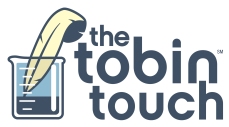I’ve been a full-time freelance writer/editor for a few years now, and a part-timer for a decade before that. Feels like I should have the pricing issues worked out, right? Nope. At the moment it feels as if I have hit a wall – pricing is tied to the growth of my business, and as a single editor, I have a finite amount of time. I have to make every hour count. So if I am going to have an income that increases with the cost of living, I have three options: bring in other editors who can take on the overflow; raise my hourly rate; or start using project-based fees. I now recognize the need to address this issue or watch my income stall (or worse, watch my business wither away). Here is the argument that rages in my head:
1) The question of branding
There’s a great pair of posts over on An American Editor that discusses the pros and cons of staying a “solopreneur” or becoming part of a group of editors. I know this depends on the kind of editing you do, so I’m still working through this. Up to this point, I have been selling myself and my skills as my brand. Should I expand my brand to include other editors and their skills? But the bigger obstacle is administrative. I can’t even fathom how I would handle my projects plus management of other editors’ projects and payments. I would definitely need to hire some kind of virtual assistant, and then there goes any extra income I would have gained by becoming a multi-editor company.
2) The pitfalls of project-based pricing
I have this mental block against project-based pricing, particularly for editing jobs. I find it incredibly difficult to anticipate the scope of editing projects, and usually end up underselling myself. For those clients who have insisted on a project-based fee, I have run into two issues. The first is that my estimate is taken as the project fee, with no room to increase fees should the scope of work change. In response, I have started to produce incredibly detailed scopes of work for these projects so that I can give myself some leeway to renegotiate (and something to fall back on when the client starts asking for more than what the fee covers), but it has been a bit of a learning process. I also have to remind myself to stipulate that a portion of the project fee will be paid midway through the project, or with the first deliverable, or whatever. Otherwise my cash flow gets seriously messed up.
3) The icky-ness of raising rates
I am probably justified in raising my rates, which haven’t really changed for – I am embarrassed to admit – 8 years. The first time I tried to raise my rates, I met with so much push back that it put me off trying again for quite some time. In fact, it resulted in this particular client hiring me at the new rate but telling me to limit the time I worked on the project (so that the final fee was about the same). Ugh. Really? I am going to take your project, work on it for X amount of hours, and then, no matter what state the project might be in, stop working and send it back to you? Really? At the risk of losing a pretty regular client, I tried to work faster to get everything done in the stipulated time frame–showing the client they get what they pay for–but I am always anxious that working faster also means producing poorer quality work. Which is definitely NOT a precedent I’d like to set.
The most recent experience involved me butting heads with client’s HR and the “company policy” that could not be changed no matter how valuable my services might be, so sorry. Again, I backed off because the project was a pretty big one and I didn’t want to miss out and wonder where I was going to make up the income.
Now, I realize that this is no way to run a business, particularly now that this business is my sole source of income. I hate rocking the boat, but I know that when I fail to negotiate, I may be perceived as an amateur who doesn’t even recognize her own value. The business side of freelancing is really doing my head in.
To raise my rates, I think the easiest way is to go back and look at all of my service agreements, find the ones with rates that need to be changed, and for those that are about to expire, renew at the higher rates. I just have to be confident that I will find new clients who will accept my rates, knowing that they are getting a quality service.
For the project-based fees, I need to write out exactly what the fee includes, and if the fee is low, then the scope of work will need to be smaller. I need to make sure that my time is spent wisely, and that my effective hourly rate doesn’t shrink down to ridiculous.
So there is the glimpse of the pricing chaos in my head. I really know what I need to do, I just need the confidence to be the savvy business woman who can do it.



 ay that reflects who you are and what you stand for. Brian talked about building your reputation, then delivering on your marketing promises and gently reminding your clients about the value you bring.
ay that reflects who you are and what you stand for. Brian talked about building your reputation, then delivering on your marketing promises and gently reminding your clients about the value you bring.

